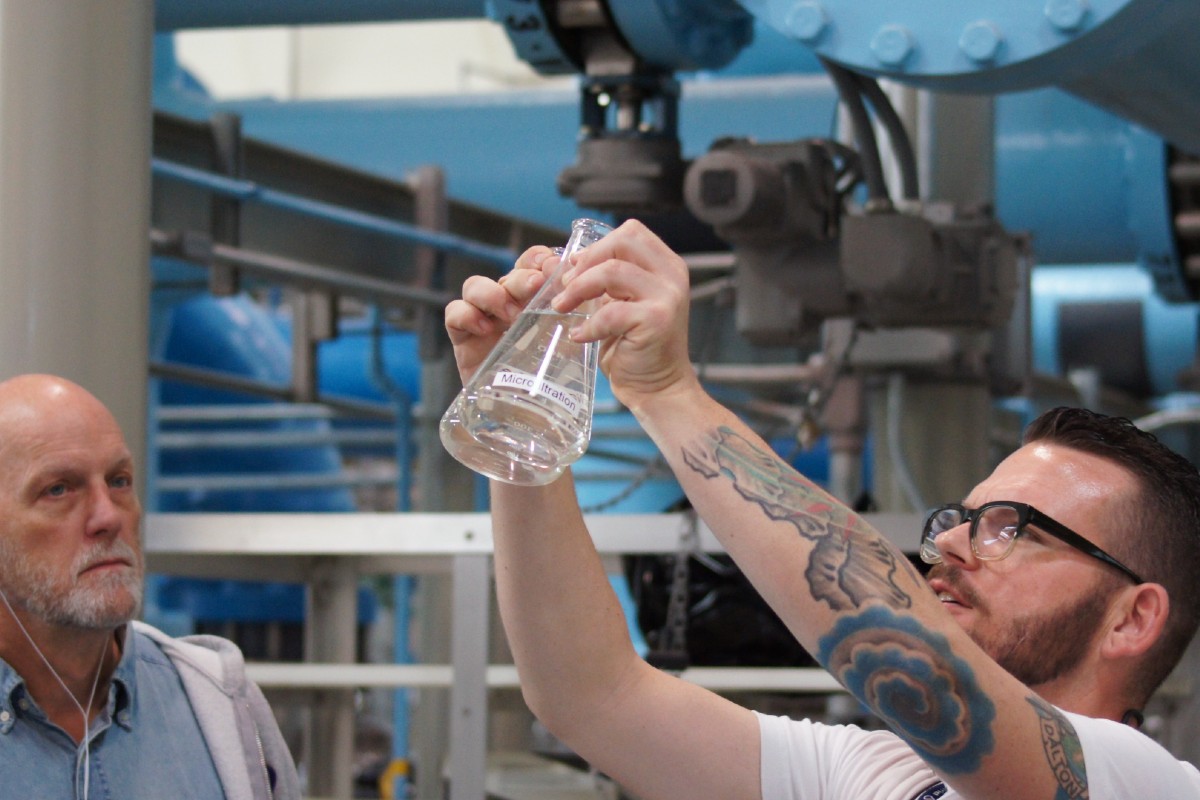
By Andy Brack, editor and publisher | About a dozen years ago, a think tank challenged Southern legislators to engage on multiple environmental challenges.
 Unsurprisingly, they mostly just nibbled around the edges, tweaking this and slapping putty on that. They haven’t confronted climate change seriously or done much to truly embrace renewable energy. Seeking environmental justice for the downtrodden is mostly just a good idea — still. Preserving land and cleaning up pollution get a lot of lip service. In the years since the book, other challenges have emerged — flooding, infrastructure, old dams — but they never get the priority they deserve.
Unsurprisingly, they mostly just nibbled around the edges, tweaking this and slapping putty on that. They haven’t confronted climate change seriously or done much to truly embrace renewable energy. Seeking environmental justice for the downtrodden is mostly just a good idea — still. Preserving land and cleaning up pollution get a lot of lip service. In the years since the book, other challenges have emerged — flooding, infrastructure, old dams — but they never get the priority they deserve.
It’s past time for the Palmetto State to step up to the plate and do more to protect her environment and special places. Just as the National Wildlife Federation’s Collin O’Mara says Congress needs a bold blueprint in 2021, the South Carolina General Assembly must start doing some measurable, real things to deal effectively with environmental challenges. No more sweeping things under the rug.
An environmental blueprint for South Carolina
Get rid of coal-fired power plants. There are five of these plants left. While they mostly are used for needs in peak power, they’re dirty and need to be shuttered. Give renewable energy the investment and love it deserves. It’s less expensive to generate over the long haul and it’s a gift that keeps on giving.

“Closing coal plants is one of the top things we can do to reduce carbon emission,” said Alan Hancock of the S.C. Coastal Conservation League. “It’s also important for power bills, public health concerns, environmental justice concerns and for localized air pollution, (reducing) particulate matter, ozone pollution and mercury pollution.”
John Tynan, head of the Conservation Voters of South Carolina, said while moving away from coal-based energy, the state should also “transition to at least 50 percent of (electricity) generation being clean energy in the next 10 to 15 years” and be on a path to 100 percent from renewables over 30 years.
Deal with Santee Cooper. The state-owned utility is again being threatened for sale or some kind of rearranged management deal. State lawmakers have it in their power to keep the utility in state hands but make it work better for everyone. They need to stop kicking the can down the road and give it a chance to clean up its act. Literally. Whatever happens, Hancock said, “We want to ensure there’s some level of Public Service Commission accountability and oversight with the South Carolina General Assembly.”
 Clean up our drinking water. “Forever chemicals” are used in everything from firefighting to making wrinkle-free shirts. Unregulated, they are contaminating local water supplies, particularly in areas where low-income people live because of their proximity to military bases and industrial facilities, said Rep. J.A. Moore, D-North Charleston. He plans to file a bill again to have the state set acceptable levels of contaminants, which will cause local water systems to remove unsafe levels of these chemicals from water. He noted: “Once you start regulating them, it’s just like Pandora’s box … because it will cost billions of dollars to fix.”
Clean up our drinking water. “Forever chemicals” are used in everything from firefighting to making wrinkle-free shirts. Unregulated, they are contaminating local water supplies, particularly in areas where low-income people live because of their proximity to military bases and industrial facilities, said Rep. J.A. Moore, D-North Charleston. He plans to file a bill again to have the state set acceptable levels of contaminants, which will cause local water systems to remove unsafe levels of these chemicals from water. He noted: “Once you start regulating them, it’s just like Pandora’s box … because it will cost billions of dollars to fix.”
Reduce plastic pollution. Here’s a case where the legislature needs to do nothing: Stop considering proposed bans on bans of single-use plastic by local governments. They should be able to get rid of plastic bags if they want, particularly on the coast to help clear it of trash.

Protect more land. The state has a plethora of special places that need to be kept out of the hands of developers. Protecting land also allows areas that are vital for mitigation of flooding and more. There should be “a dramatic increase over time in land protection, supported by both funding increases and innovative policies,” Tynan said. “One bill introduced last session set a goal of protecting 30 percent of the state by 2030.”
Engage on climate change meaningfully. And then there’s the increasing number of headaches caused by failing to manage climate change. Policymakers need to listen to scientists, not the tin hat crowd. Strategies need to be developed and implemented to reduce flooding (not only on the coast) and to boost community resilience.
Make green investments and policies that make a difference. Now is the time.
Andy Brack is editor and publisher of Statehouse Report. His column also is published in the Charleston City Paper, Florence Morning News, Greenwood Index Journal, The (Seneca) Journal, Camden Chronicle Independent and Hartsville Messenger. Have a comment? Send to: feedback@statehousereport.com.



CVSC gives legislators too much of a pass with the single-issue focus of their ratings. A more robust requirement that the legislator first pass the human needs hurdle to be considered for their conservation votes in the second tier would put the whole person under consideration.
Mr. Brack:
I’m curious: Where do you stand on the issue of unsustainable population growth and its impact on the environment?
Haven’t really considered it. But off the cuff, discouraging population growth to reduce impacts makes sense.